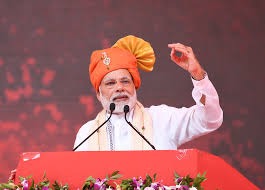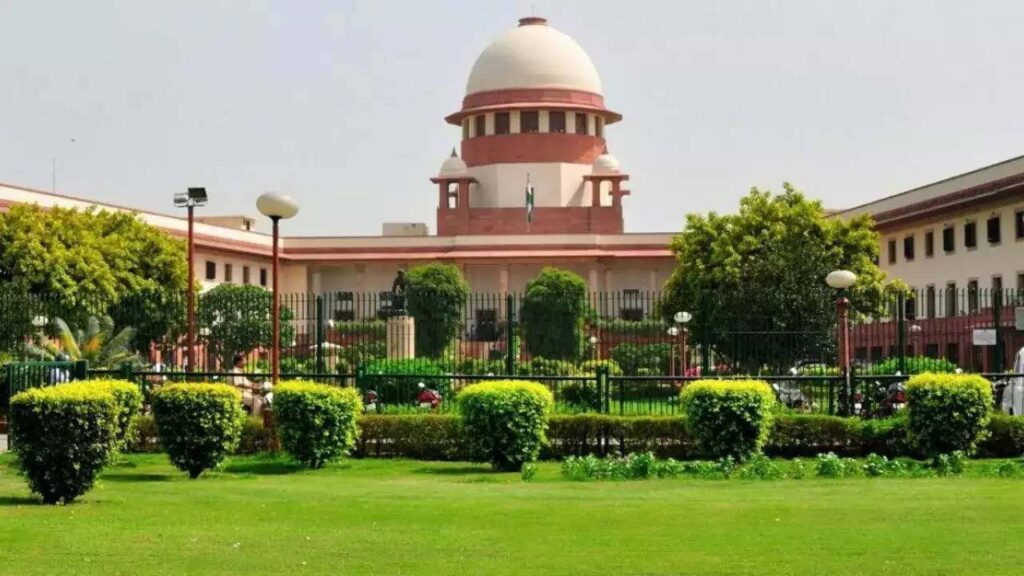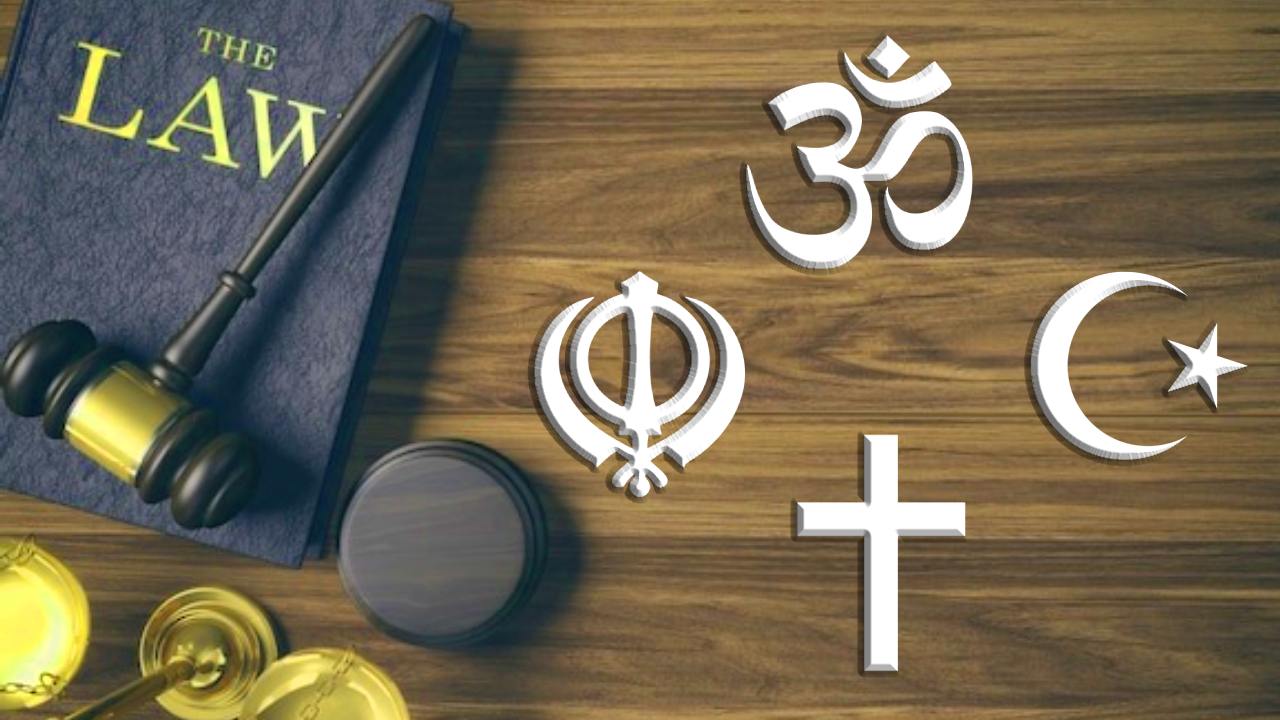Table of Contents
The Uniform Civil Code (UCC) has been a matter of intense debate and deliberation in numerous nations across the globe. Its objective is to supplant personal laws that are rooted in religious practices and customs, replacing them with a harmonized set of laws that apply uniformly to all members of society. Within this discourse, we shall delve into the concept of the Uniform Civil Code, comprehending its significance, and contemplating the profound influence it holds over society.
PM Modi Highlights Uniform Civil Code in His 78th Independence Day Address :

From the Red Fort, Prime Minister Narendra Modi addressed a notable speech on this 78th Independence Day. He outlined a vision for the future of India, influenced by the nationalist struggle that resulted in the country’s independence. In addition to highlighting the need for a secular substitute to end religious discrimination, he underlined how divisive the current civil code is and argued for the substitution of it with a Uniform Civil Code (UCC).
What is a Uniform Civil Code?
A Uniform Civil Code is a legal framework that governs personal matters such as marriage, divorce, inheritance, and adoption, among others, for all citizens regardless of their religious affiliations. It aims to provide a unified set of laws that promotes equality and justice among diverse communities. The Uniform Civil Code administer a singular set of secular civil laws to govern all citizens irrespective of their religion, caste, or creed. The common areas covered by a civil code include personal status, rights related to the acquisition and administration of property and marriage, divorce, adoption, succession, etc. A uniform civil code tends to simplify the Indian legal system and make society more homogenous.
The Need for a Uniform Civil Code:
The term Civil code is used to cover the entire body of law governing rights relating to property and otherwise in personal matters like marriage, divorce, maintenance, adoption, and inheritance. India is a country where numerous religions and languages are there, the people of various religions have been governed by their own personal laws since time immemorial. But India has a common code for laws related to contracts, transfer of property, penal laws, and procedural laws which are independent of religion. Now the question is why the people of the nation follow different laws only according to their beliefs and faith in their own religion.
India is a secular state which means it doesn’t follow any one religion for the country. With a view to achieving uniformity of law, its secular nature, and making it equitable and non-discriminatory, the constitution of India contains Article 44 of the Directive Principles of State policy that runs as-“the state shall endeavor to secure for the citizens a uniform civil code throughout the territory of India.” The demand for a Uniform Civil Code essentially means unifying all the personal laws to have one set of secular laws that will apply to all citizens of India irrespective of the community they belong to. In India, the Hindu personal law has by and large been secular and modernized by statutory enactments like the Hindu Marriage Act of 1955; the Hindu Succession Act, of 1956, etc. But on the other hand, Muslim law is still primarily uncodified and traditional in its content and approach. There is no lex loci in matrimonial matters in India.
The objective underlying a Uniform Civil Code is to boost the concept of national integration by eliminating contradictions based on religious ideologies and bigotries. Even after half a century after the framing of the Constitution, the ideal of the Uniform Civil Code is yet to be achieved. Where criminal law can come under uniformity then why not the civil laws to codify and get statutory recognition? The Uniform Civil Code is required not only to ensure uniformity of laws within communities, it ensuring equality between the rights of men and women also.
- Gender Justice and Women’s Rights: Personal laws in India often contain provisions that discriminate against women, particularly in matters of marriage, divorce, and inheritance. A Uniform Civil Code aims to rectify these disparities and provide equal rights and opportunities to women, thereby promoting gender justice.
- Simplifying the Legal System: By having a single set of laws for personal matters, the legal system becomes more streamlined, transparent, and accessible to all citizens. It reduces complexities and confusion that arise from different personal laws based on religious practices.
- Upholding Fundamental Rights: A Uniform Civil Code ensures that fundamental rights guaranteed by the Constitution are uniformly applicable to all citizens. It strengthens the secular fabric of the nation and prevents the misuse of religion for personal gains.
- Equality and Non-Discrimination: A Uniform Civil Code promotes the principle of equality by ensuring that all citizens, regardless of their religious beliefs, are subject to the same set of laws. It eliminates discriminatory practices and upholds the fundamental right to equality enshrined in the Indian Constitution.
- National Integration and Social Harmony: A Uniform Civil Code helps foster national integration by transcending religious divides and promoting a sense of unity among citizens. It strengthens the secular fabric of the nation and reinforces the idea of common citizenship beyond religious identities.
Constituent Assembly Debate on Uniform Civil Code:

The Constituent Assembly debates in the Constitution-making process revealed that the Constitution makers debated the concept of the Uniform Civil Code very significantly. In the constituent Assembly debate, the question of the position of personal laws got important and entangled into the whirlpool of then-nation politics. In the Constituent Assembly, the discussion on the Uniform civil code entered around three aspects. First and foremost it entered the conflict between freedom of religion and effort to improve the status of women. Secondly, there was a discussion as to the nature of a uniform civil code as a directive principle trying to take away the identity of minorities residing in the country. Thirdly an attempt was made to connect it to the secular nature of law.
The subject of uniform civil code then placed in Article 35 of the draft constitution, was discussed in Constituent Assembly on November 23, 1948. A member Md. Ismail Sahib, wanted the following to be added in the draft constitution as an amendment, “provided that any group, section or community of people shall not be obliged to give up its own personal law in case it has such a law.” Another member Nazimuddin Ahmed suggested this proviso, provided that the personal law of any community which has been granted by the statute shall not be changed except with the previous approval of the community ascertained in such manner as union legislature may be determined by law. A third member Mehboob Ali Baig Sahibwanted the following line to be added: “provided that nothing in this Article shall affect the personal law of the citizen”.
But the prominent member Kanaiyalal Maneklal Munshi in his counter-argument pointed out that Muslim countries such as Turkey and Egypt did not have personal laws for their minorities. Alladi Krishnaswamy Ayyar said that objections to a uniform civil code were unjustified. Far from creating disunity in society, a common code could foster amity among all sections of the people since they would be governed by a Uniform Civil code.
Ambedkar said that “the other members were reading too much in the Act and that it was possible that future government of India could take baby steps to enforce it such as making it voluntary for minority citizens to apply the code to themselves through a (written) declaration to that effect. It would be perfectly possible for parliament to introduce a provision of that sort so that the fear which my friends have expressed here will be altogether nullified ”.
Legislative Reforms and Public Awareness:
Implementing a Uniform Civil Code requires careful consideration of socio-religious sensitivities. It should be approached with a spirit of dialogue, consensus-building, and respect for diverse perspectives. The government should initiate consultations with legal experts, scholars, and stakeholders to draft a well-defined code that ensures fairness, equality, and justice for all. Simultaneously, public awareness campaigns should be conducted to educate citizens about the benefits of a Uniform Civil Code and dispel any misconceptions.
Secularism and Uniform Civil Code:
The spine of Controversy revolving around the Uniform Civil Code has been secularism and the freedom of religion enumerated in the constitution of India under Articles 25 and 26. The preamble of the constitution states that India is a secular, Democratic, republic. This means that there is no state religion. A secular state shall not discriminate or give preference, or favor to anyone on the ground of religion. Religion is only concerned with the relationship of man with God. It means that religion should not be interfering with the mundane life of an individual. The process of secularism is intimately connected with the goal of a uniform civil code like a cause and effect.
In S.R. Bomai V Union of India,1994, as per Justice Jeevan Reddy, it was held that religion is a matter of individual faith and cannot be mixed with secular activities that can be regulated by the state by enacting a law. Article 25 and 26 of the Constitution guarantees the right to freedom of religion to every person, the freedom of conscience and the right to profess, practice and propagate religion. But this right is subject to public order, morality, and health and to the other provision of part III of the Indian Constitution. But the Uniform Civil Code doesn’t oppose secularism or will not violate Articles 25 and 26. Marriage and succession are of secular nature and therefore the law can regulate them.
The approach of the Judiciary:

The Supreme Court for the first time, directed the parliament to look towards framing a Uniform Civil Code in 1985 in the case of Mohammad Ahmed Khan Vs. Shah Bano Begum, AIR 1985 SC 945; popularly known as the Shah Bano Case. The Supreme Court of India delivered a significant judgment relating to the issue of the Uniform Civil Code.
The controversy in the case arose from the claim for maintenance by Shah Bano Begum, a Muslim woman, after her divorce from her husband. The court had to decide if Muslim women had the same right to maintenance claims as women of other religions under Section 125 of the Code of Criminal Procedure.
The Supreme Court examined the idea of a uniform civil code while analyzing the case. It was observed that Article 44 of the Indian Constitution specified that all people of the nation, regardless of their religious affiliations, would be subject to a Uniform Civil Code. The Court emphasized that the goal of a uniform civil code was to provide all people equal treatment and legal protection regardless of their faith. The Court opined that the intention of Article 44 was to bring about a common code governing personal matters such as marriage, divorce, and inheritance, among others. It stressed that the goal of a Uniform Civil Code was to promote national integration and gender justice. However, in this particular instance, the Court ruled that there was no need to look into the creation of a Uniform Civil Code because the issue could be resolved under the law as it currently exists. The Court held that Shah Bano Begum was entitled to maintenance under Section 125 of the Code of Criminal Procedure, irrespective of her religion. Even while the Court refrained from making a strong ruling regarding the adoption of a uniform civil code, its findings, in this case, emphasized the necessity of a uniform body of rules controlling personal concerns for all people. The judgment served as a catalyst for discussions and debates on the Uniform Civil Code, prompting a broader examination of the issue in the public domain.
In summary, the Supreme Court, in the case of Mohammad Ahmed Khan vs. Shah Bano Begum, acknowledged the significance of a Uniform Civil Code in ensuring equal rights and protection for all citizens. Although the Court did not directly mandate the implementation of a Uniform Civil Code, its observations underscored the importance of pursuing a common civil code to achieve uniformity and equality in personal laws.
In Sarala Mudgal Vs. Union of India & others,AIR(1995) 3 SCC635;
The case of Sarla Mudgal vs. Union of India & others (AIR 1995 SC 1531) is another significant judgment by the Supreme Court of India regarding the Uniform Civil Code.
The case dealt with the issue of bigamy and the conversion of a Hindu man to Islam for the sole purpose of contracting a second marriage while still being married under Hindu law. The petitioners claimed that such acts of converting to Islam exclusively for the purpose of engaging in polygamy violated the laws of justice, equality for women, and the rights of women guaranteed by the constitution.
In its ruling, the Supreme Court emphasized the value and significance of a uniform civil code. The Court observed that the framers of the Indian Constitution had envisaged the implementation of a Uniform Civil Code under Article 44. The purpose of a Uniform Civil Code was to eliminate disparities and inequalities arising from personal laws based on religious practices. The Court made it clear that the idea of a uniform civil code did not infringe upon the constitutionally protected right to practice one’s faith. It clarified that a Uniform Civil Code would not infringe upon the core religious practices and beliefs of individuals but would rather focus on ensuring gender justice, equality, and the protection of fundamental rights. In this case, the Court determined that a Hindu spouse could not circumvent his responsibilities under the Hindu Marriage Act by converting to Islam and remarrying. The Court declared that such conversions for the sole purpose of practicing polygamy were invalid and did not absolve the husband from his responsibilities towards his first wife. In its ruling, the Court also instructed the Law Commission of India to investigate the idea of a uniform civil code and make suggestions for its adoption.
In summary, the Supreme Court, in the case of Sarla Mudgal vs. Union of India & others, reiterated the significance of a Uniform Civil Code and the need to eliminate inequalities arising from personal laws based on religion. The judgment highlighted that a Uniform Civil Code would promote gender justice, equality, and the protection of fundamental rights, without infringing upon religious freedom. The Court’s decision also directed the Law Commission to investigate and make recommendations regarding the implementation of a Uniform Civil Code in India.
Also, Supreme Court has pronounced one of the important rulings in the case of Seema v. Ashwani Kumar AIR(2006)as a first step to forming Uniform Civil Code. The Supreme Court of India ruled that all marriages in India should be compulsorily registered. This was in response to the growing problem of unscrupulous persons denying the existence of their marriages, taking advantage of the fact that in most states there is no official record of marriages. The Court noted that compulsory registration of marriages would have a number of benefits, including:
- It would provide clear and unambiguous proof of marriage, which would be helpful in cases of divorce, maintenance, and inheritance.
- It would help to prevent child marriages, as couples would be less likely to marry their children if they knew that the marriage would have to be registered.
- It would help to protect the rights of women, as they would be more likely to be able to prove their marital status and claim their rights under the law.
The Court directed the states and union territories to draft rules for the registration of marriages within three months. The rules should be simple and easy to follow, and they should be made available in all languages. The judgment in Seema v. Ashwani Kumar is an important step towards ensuring that the rights of women and children are protected in India. It is also a step towards making marriages more transparent and accountable.
The esteemed Supreme Court’s consistent emphasis on the importance of a Uniform Civil Code and its resolution of apparent conflicts in personal laws underscore the necessity of separating law from religion. By enacting a Uniform Code, secularism will be fortified, paving the way for the dissolution of existing divisions among religious groups in our nation. Consequently, India will emerge as a stronger, more cohesive, and integrated nation, fostering a harmonious and inclusive society. The Supreme Court has emphasized the steps to be initiated to enact a Uniform Civil Code as envisaged by Article 44. Reviewing the various laws prevailing in the area of marriage in India, the Court has said in Ms. Jordan Deingdeh Vs SS Chopra, AIR 1985 ;
The case of Ms. Jordan Diengdeh vs S.S. Chopra, AIR 1985 concerned a Christian woman who had married a Sikh man under the Indian Christian Marriage Act, 1872. The woman filed for divorce on the grounds of her husband’s impotence. The High Court granted her a decree of judicial separation on the ground of cruelty but did not grant her a decree of divorce. The Supreme Court upheld the High Court’s decision on the ground of cruelty but also expressed its dissatisfaction with the current state of the law relating to divorce and the nullity of marriage in India. The Court noted that the law on these matters is fragmented and discriminatory and that there is no uniform civil code for all Indians. The Court held that the absence of a uniform civil code is a “serious lacuna” in the Indian legal system and that it is “a matter of regret that even after 40 years of independence, we have not been able to achieve the goal of a uniform civil code.”The Court also noted that the current law on divorce and the nullity of marriage is “inequitable” and “discriminatory” against women. For example, the grounds for divorce and the nullity of marriage are different for men and women, and the procedures for obtaining a divorce are also different.
The judgment of Ms. Jordan Diengdeh vs S.S. Chopra, AIR 1985 is an important reminder of the need for a uniform civil code in India. The Court’s observations on the current state of the law on divorce and the nullity of marriage are still relevant today, and they highlight the need for reform.
Conclusion:
A Uniform Civil Code (UCC) is a theoretical legal framework that strives to regulate domestic issues like marriage, divorce, inheritance, and adoption for all people of a country, regardless of their religious connections. The main goal of a UCC is to offer a unified body of laws that advance justice and equality across different communities. By replacing personal laws that are rooted in religious practices and customs with a common civil code, the legal system becomes more harmonized and transparent, ensuring fairness and equal treatment for all citizens.
In many countries, including India, a diverse society with numerous religions and languages, personal matters have been governed by distinct laws based on religious beliefs and practices. While some areas of the legal system, such as criminal law and procedural laws, apply uniformly to all citizens regardless of religion, personal laws have often varied, leading to disparities in rights and treatment. As a result, numerous communities follow their own sets of regulations based on their religious convictions, which may at times be discriminatory, especially towards women. The demand for a uniform civil code is based on secularism, national integration, and the desire to build an equitable society that eliminates prejudice. However, establishing in UCC is a challenging task that involves careful consideration of the diverse religious and cultural practices that exist in the nation. There are concerns about infringing upon the freedom of religion and cultural identities of minority communities. Therefore, any steps towards enacting a UCC should be approached with sensitivity and respect for different viewpoints.
The judiciary’s consistent emphasis on the importance of a UCC has prompted discussions and debates in the public domain. It has encouraged the government to initiate legislative reforms and consult with legal experts and stakeholders to draft a well-defined code that upholds the principles of equality and justice. However, implementing a UCC requires a balanced approach, as it involves addressing sensitive issues and navigating the complexities of a diverse society. Legislative reforms and public awareness campaigns can play a crucial role in generating public support and understanding for a UCC. Public consultations and dialogue with various stakeholders can help dispel misconceptions and apprehensions. The implementation of a UCC requires careful consideration, public awareness, and respect for diverse perspectives. It is a transformative step towards building a more just, equitable, and inclusive society.
FAQ
| NOTE: If you have any questions or corrections required related to the topic uploaded on the website, feel free to email us at gkfunda94@gmail.com. |

